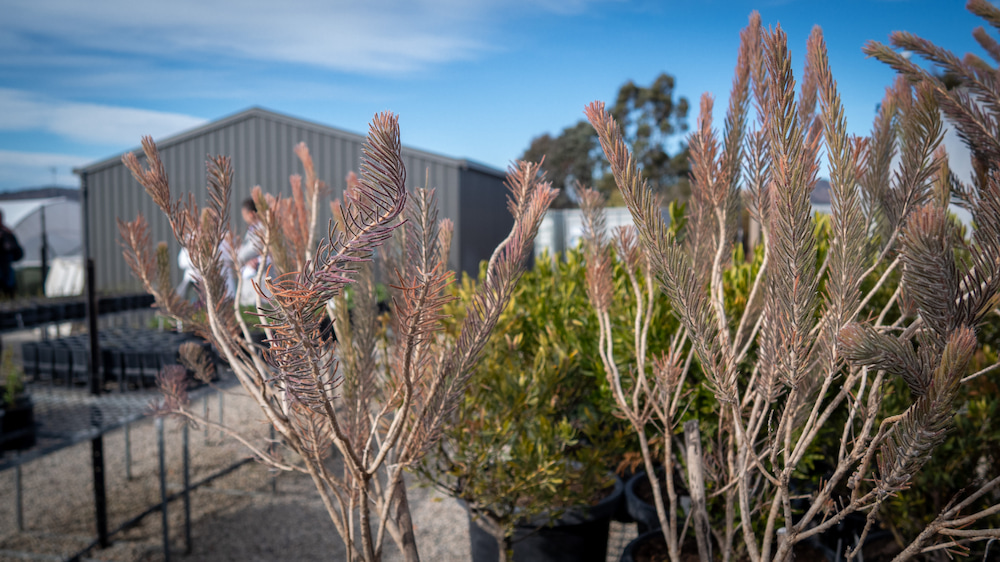Prisoners at the Alexander Maconochie Centre (AMC) have propagated 3,000 native plants over the past year to help the Murrumbateman Landcare Group (MLG) restore endangered grassy woodlands in the Yass region.
The seven detainees employed in the AMC’s Production Nursery and Horticulture Program have mastered various propagation techniques, including hot and smoke-water treatment and cold stratification, ensuring the plants’ optimal germination and resilience.
The program has run for three years; it provides the detainees with valuable horticultural skills and fosters a sense of purpose and connection to the environment, the program’s supervisor, Leigh, said.
“The experience has also given detainees a real sense of achievement while nurturing their own personal growth. For some, these programs are more than a way to pass the time of their sentences – it can open up pathways for life after prison.”
“We are incredibly proud of the dedication and skill demonstrated by the detainees in this program,” ACT Corrective Services Commissioner Bruno Aloisi said. “Their contribution to reforestation efforts not only benefits the environment but also equips them with valuable work and general life skills.”
The MLG chose the species – including eucalypts, wattles, shrubs, and groundcovers – for their ability to withstand future climate conditions. The native tubestock plants were grown as seeds from both local and non-local sources to ensure genetic diversity and improve soil health on private and public lands in the Murrumbateman region.
“This partnership is a wonderful example of how we can work together to achieve positive outcomes for both the environment and individuals involved,” committee member Gill Hall said. “The detainees were able to raise some species that the nursery has struggled to grow in Murrumbateman. The tubestock we collect from them always looks so big and healthy, and we love having this connection with the AMC.”
Emma Davidson, ACT Minister for Corrections and Justice Health, said the program was one of several opportunities offered to AMC detainees to learn new skills, build confidence, and give back to their community.
“Everyone has the power to make our environment more resilient to better respond to the climate crisis,” Ms Davidson said.
“There are commercial grow houses and stock gardens in AMC to empower those who care about our environment to take meaningful action and be part of the collective community effort to keep the ACT region’s environment thriving.
“Programs like this help people learn and build new skills, explore their interests, and connect with the broader community. When people have opportunities like this, they feel a stronger sense of belonging, respect, and care for themselves and those around them.”
Attorney-General Shane Rattenbury said the partnership demonstrates that rehabilitation and community engagement can go hand-in-hand with positive results.
“This approach aligns with our commitment to evidence-based rehabilitation programs that reduce recidivism and promote successful reintegration. It’s a powerful example of how innovative programs can deliver benefits for detainees and the community alike.”
MLG volunteer Fiona Hamer’s sheep farm is among the project’s revegetation sites. She was thrilled to see the region’s blossoming biodiversity.
“Last year’s (plants) went to the top of a rocky gully, plus a high ridge-line where they will help hold the soil and provide refuges for wildlife. This year’s plants are going into a windbreak that will connect bird-friendly plots from earlier years, help protect ancient remnant paddock trees, as well as reduce stress for lambing ewes by providing shade and shelter.”



